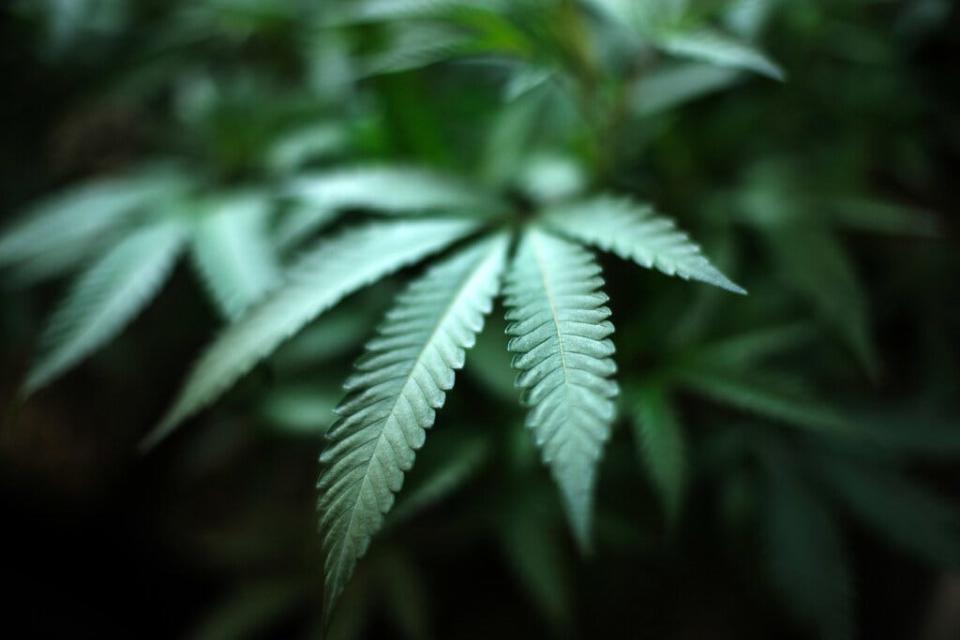Worried about an RI marijuana arrest on your record? Here's what you can do about it.
PROVIDENCE – Rhode Island became the 19th state to legalize recreational marijuana this May, joining our neighbors in Massachusetts and Connecticut.
Under the new law, possession and home-growing of cannabis is now legal for adults age 21 and older, and in-store sales may begin as soon as December 1.
One of the key components of the law, celebrated by advocates as a move toward social equity, is a provision automatically expunging criminal records related to possession charges that have now been decriminalized. The state judiciary has until July 1, 2024, to clear those records from the court system – a process that is just getting under way.
'Equitable, controlled and safe': What you need to know about cannabis legalization in Rhode Island
Marijuana is legal in Rhode Island: What does it mean for drug tests, employers and employees?
Rhode Islanders need not wait two years to have marijuana charges stricken from their records.
The law specifies that people can proactively ask the court to expunge the records.
According to Craig N. Berke, spokesman for the state courts, people can write to the court in the county where the charge was filed and request an expungement – a step no one has taken to date.

The protocols for expungements are still being worked out, Berke said, but there will be no filing fees. Any outstanding costs and fees will also be waived, though people will not be reimbursed for any costs or fees that have already been paid.
If the amount of marijuana is not stated, the court will presume the amount to have been two ounces or less, making the person eligible for expungement.
What will expunging your record do?
If the court determines a record is to be expunged, it shall order all records of conviction or civil adjudication be removed from public inspection. The court will send a copy of the order to the attorney general’s officer and the charging law-enforcement agency within a reasonable timeframe.
The judiciary is still working out the process for expedited automatic expungement of simple marijuana possession, Berke said.
Those cases that can be fast-tracked include only marijuana possession alone and are expected to be fairly straightforward, he said.
Marijuana is now legal in Rhode Island, but driving high isn't: How will police identify offenders?
Simple possession charges that are part of cases involving other charges will be more involved but it can be done, Berke said. Charges that occurred after 2014 will be done first, and the courts will process cases incrementally as it gets to the older charges.
Bigger offenses, however, such as intent to deliver marijuana or manufacturing, would be ineligible for expungement.
In researching the implications of the bill, the courts examined the universe of marijuana violations in the computer systems stretching back decades.
Berke said in May that the judiciary had identified 27,000 cases eligible for expungement where possession of marijuana was the one and only charge – and “thousands more” in which possession was among multiple charges someone faced.
Earlier coverage: Lawmakers vote to legalize recreational marijuana in RI
Rhode Island lawmakers decriminalized possession of an ounce or less of the drug a decade ago, making them civil violations, similar to a parking ticket and processed at the Rhode Island Traffic Tribunal.
The new law dictates that convictions and civil violations will be expunged, regardless of prior arrests and convictions, including for crimes of violence and pending criminal proceedings.
The existence of multiple convictions within a singular case that are not eligible to be erased will not prevent an eligible conviction from being expunged.
Jason Dixon-Acosta, a criminal defense lawyer, said Wednesday that he hadn't yet had a chance to advise a client on expungement. He assumes, he said, it will work much like expungement rules already in place for charges of driving on a suspended license or for possession of small amounts of marijuana.
Will you need to disclose the expunged conviction when apply for a job?
According to the law, a person applying for a job, license, or other civil right or privilege whose conviction has been expunged may state that he or she has never been convicted of the crime or found to be a civil violator.
The law further specifies that expunged material shall not be disclosed unless the person is an applicant for a law enforcement agency position; for admission to the bar of any court; an applicant for a teaching or coaching certificate; or the operator or employee of an early childhood education center.
With legal marijuana in RI, 'tens of thousands' of past convictions may disappear
Under the law, too, any custodian of expunged records of convictionshall not disclose the existence of the records to any source unless the inquiry relates to admission to the state bar or a disciplinary matter; comes from the commissioner of elementary and secondary education, or any law enforcement agency when the nature and character of the offense in which an individual is to be charged would be affected by virtue of the person having been previously convicted or adjudicated for the same offense. In that case, the custodian of any records will only release or allow access to those records for the specific purpose or by order of a court.
Governor Daniel McKee and state lawmakers appropriated $255,000 for overtime and $85,000 for the courts to hire a contract worker to undertake the expungement project, Berke said.
This article originally appeared on The Providence Journal: How Rhode Island residents can get their marijuana charges expunged

 generic
generic 